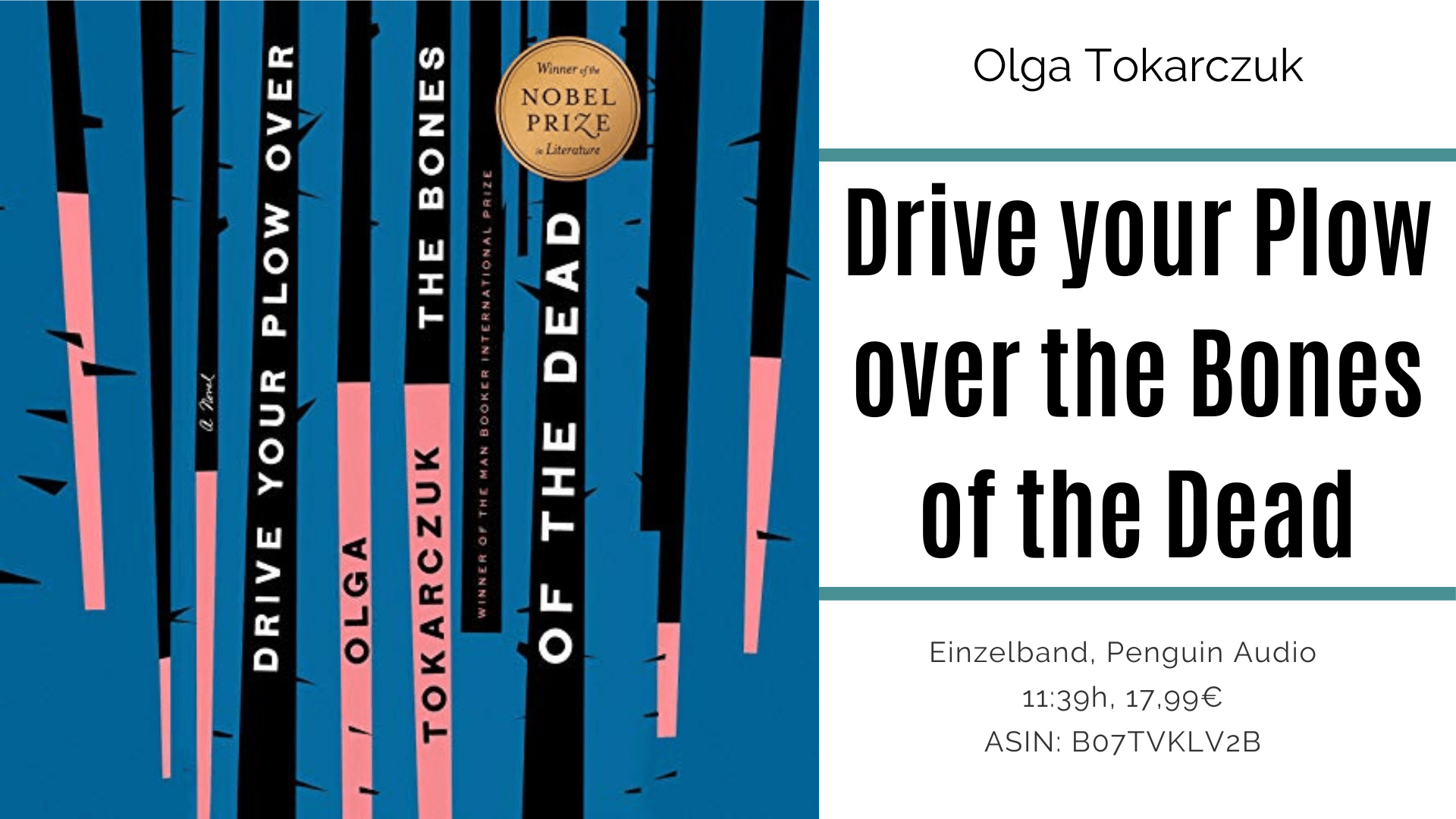With Drive Your Plow Over the Bones of the Dead, Man Booker International Prize-winner Olga Tokarczuk returns with a subversive, entertaining noir novel.
In a remote Polish village, Janina Duszejko, an eccentric woman in her sixties, recounts the events surrounding the disappearance of her two dogs. She is reclusive, preferring the company of animals to people; she’s unconventional, believing in the stars; and she is fond of the poetry of William Blake, from whose work the title of the book is taken. When members of a local hunting club are found murdered, Duszejko becomes involved in the investigation.
By no means a conventional crime story, this existential thriller by ‘one of Europe’s major humanist writers’ (Guardian) offers thought-provoking ideas on our perceptions of madness, injustice against marginalized people, animal rights, the hypocrisy of traditional religion, belief in predestination – and caused a genuine political uproar in Tokarczuk’s native Poland.
I did not choose this book myself
… but I found myself quickly captivated by the author’s writing. Set in rural Poland, I had no real connection to the people or the setting at first. But the narrator’s plain way of describing things made her sympathetic in few pages. Even more so by reacting to her neighbor’s sudden death and giving us more and more puzzle pieces about her surroundings. Not only the sudden murder cases but also her whole life was a riddle for us to solve and it was very intriguing indeed. The most entertaining part was for the narrator to leave out pieces of information at first and revealing them later. She thus was rather unreliable. Nonetheless, or exactly for that reason, it was enchanting to look experience everything through her eyes.
The story appeared to be in a quite reclusive setting
… there were several more interesting characters. We get to know of the narrator’s other neighbor and her friends that she accumulated over the years. Her professional background and her passion for astrology make her a fascinating point of view and detective. Her attitude that tries to protect any kind of animal further made her a dismissed voice of reason in her surrounding with which I highly sympathized. I wanted to applaud some of her deductive and some of her socially critical monologues—probably as much as never before for any fictional character. She further presents herself in a fairly badass manner with her friends, but even more with those she disagrees with.
The animal ethical messages of this book stand out to me most
…as I have never seen such an activist position within a book. But also on a highly individual level, this story will engage a lot of its readers. It took quite a while for the readers to fully grasp the motivation and engagement of our narrator. But through many small details, interactions, and thought processes, we will understand her reasoning and endeavors better and better. As do we with the surroundings and the people she interacts with. The author draws a magnificently intriguing picture of rural Poland and weighs tradition and religion against ethics and reasoning. Our narrator is surely not the model protagonist, but she will hammer some sense into the readership and her fellow citizens.
In conclusion
At first, I was a little skeptical as I had never picked up this book myself. But this time our book club’s choice was a complete success. Not only does the author show an immense ability to play with words, but also to capture our attention despite the ordinariness of some of her observations. The story is anything but ordinary, albeit refreshingly realistic and touching. Original from the writing style to the setting and plot, to themes rarely tackled before.

The author:
Olga Tokarczuk is the author of nine novels, three short story collections and has been translated into forty-five languages. Her novel Flights won the 2018 International Booker Prize, in Jennifer Croft’s translation. In 2019, she was awarded the Nobel Prize in Literature. Source
The speaker:
Beata Poźniak (born 30 April 1960) is a Polish-American actress, film director, poet, painter and an Earphones Award-winning narrator. She is also a human rights activist who introduced the first bill in the history of US Congress to officially recognize International Women’s Day in the United States. Source

